Copaxa mielkeorum
|
|
Updated as per Entomo Satsphingia Yahrgang 3 Heft 3 28.06.2010; March 12, 2012
Updated as per personal communication with Luis Cesar Tejo (Misiones, Argentina); November 30, 2013
Updated as per personal communication with Philippe Brems (Sao Bento Do Sul, Santa Catarina, Brazil, December); January 28, 2016
Updated as per personal communication with Jhonatan Santos (mature larvae, Itaperucu, Parana, Brazil, December 3, 2020); December 4, 2020
|
Copaxa mielkeorum
koh-PAX-uhMMEAL-key-or-um
Brechlin & Meister 2010
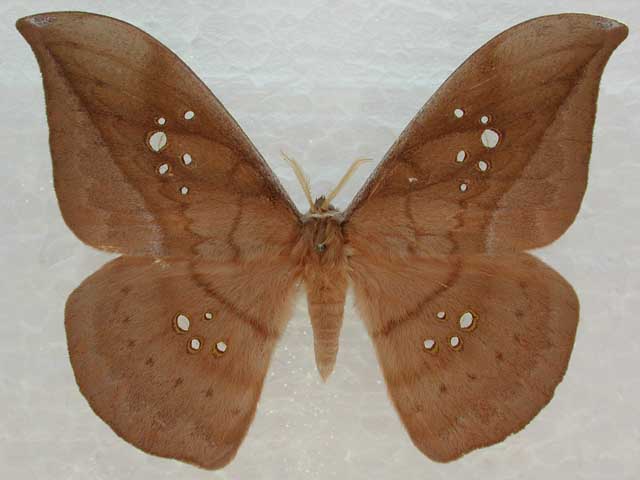
Copaxa mielkeorum male, Brazil,
courtesy of Eric van Schayck,
id and slight digital repair by Bill Oehlke.
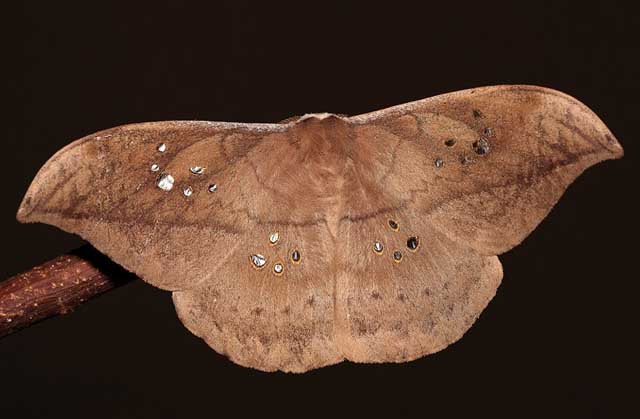
Copaxa mielkeorum male, Campo Ramon, Misiones, Argentina,
courtesy of Mariposa Chacra, via Luis Cesar Tejo
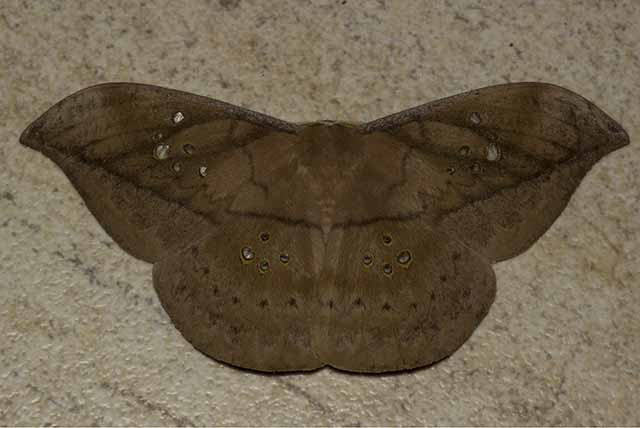
Copaxa mielkeorum male, Sao Paulo, Brazil,
October 1, 2014, courtesy of Enio Branco.
This site has been created by Bill Oehlke.
Comments, suggestions and/or additional information are welcomed by Bill.
| TAXONOMY:
Superfamily: Bombycoidea, Latreille, 1802
Family: Saturniidae, Boisduval, [1837] 1834
Subfamily: Saturniinae, Boisduval, [1837] 1834
Tribe: Saturniini, Boisduval, 1837
Genus: Copaxa, Walker, 1855
|
DISTRIBUTION:
Copaxa mielkeorum
(wingspan: males: 95mm; females: mm // forewing length: males: 54-57mm; females: 59-60mm) flies in
eastern Brazil: Bahia; Para; Sao Paulo (EB); Santa Catarina: Sao Bento do Sul; Parana (JS); and
north eastern Argentina: Misiones, at elevations from 20m - 800m.
Both males and females of this species have a lighter, brighter brown ground colour, compared to most other species
in the multifenestrata group. The forewing apices of both species are only very slightly produced.
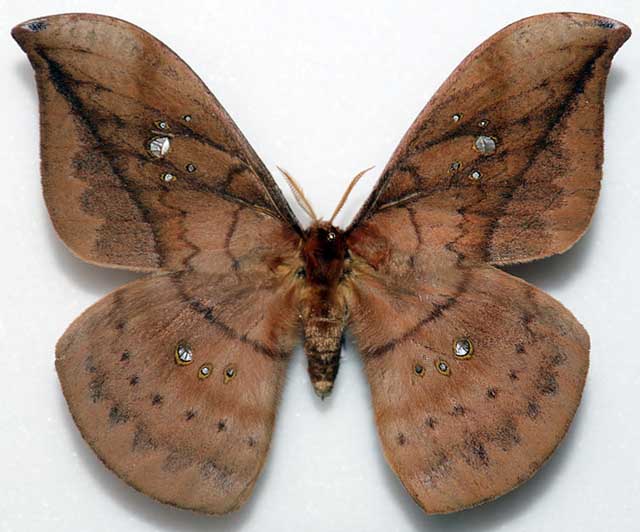
Copaxa mielkeorum male, Sao Bento Do Sul, Santa Catarina, Brazil,
95mm, December 2013, courtesy of Philippe Brems.
FLIGHT TIMES AND PREFERRED FOOD PLANTS:
Copaxa
mielkeorum larvae probably feed upon avocado (Persea americana).
Most of the Copaxa brood continuously so I suspect mielkeorum would be on the wing every month of the year. Specimens have been recorded in March and
October (Sao Bento do Sul; Santa Catarina); June (Para), October (Sao Paulo); October-November (Misiones); December (Bahia).
ECLOSION, SCENTING AND MATING:
Male Copaxa mielkeorum moths use highly developed antennae to locate
females by tracking the airbourne pheromone plume. The female releases this scent into the air via an organ extended
from the tip of the abdomen.
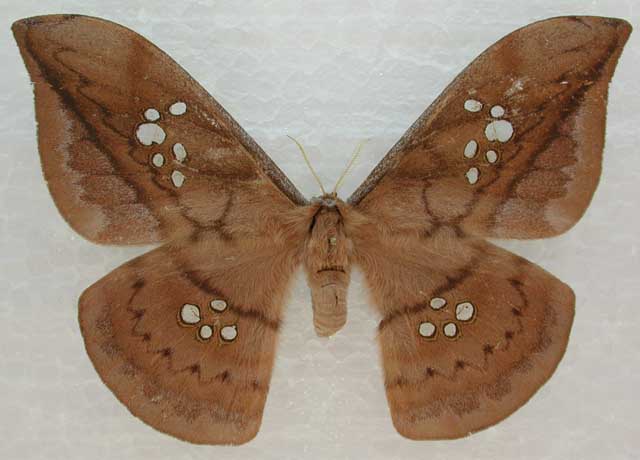
Copaxa mielkeorum female, Brazil,
courtesy of Eric van Schayck,
id and slight digital repair by Bill Oehlke.
EGGS, LARVAE, COCOONS AND PUPAE:

Copaxa mielkeorum, final instars, Itaperucu, Parana, Brazil,
December 3, 2020, via Jhonatan Santos, on my home computer only.
It is hoped that this alphabetical listing followed by the common name of the anticipated foodplant will
prove useful. The list is not exhaustive. Experimenting with closely
related foodplants is worthwhile.
Persea americana .......
|
Avocado
|
The species name is honourific for Carlos Mielke and his father Olaf Mielke.
Return to Copaxa Index
Return to Main Saturniidae Index





